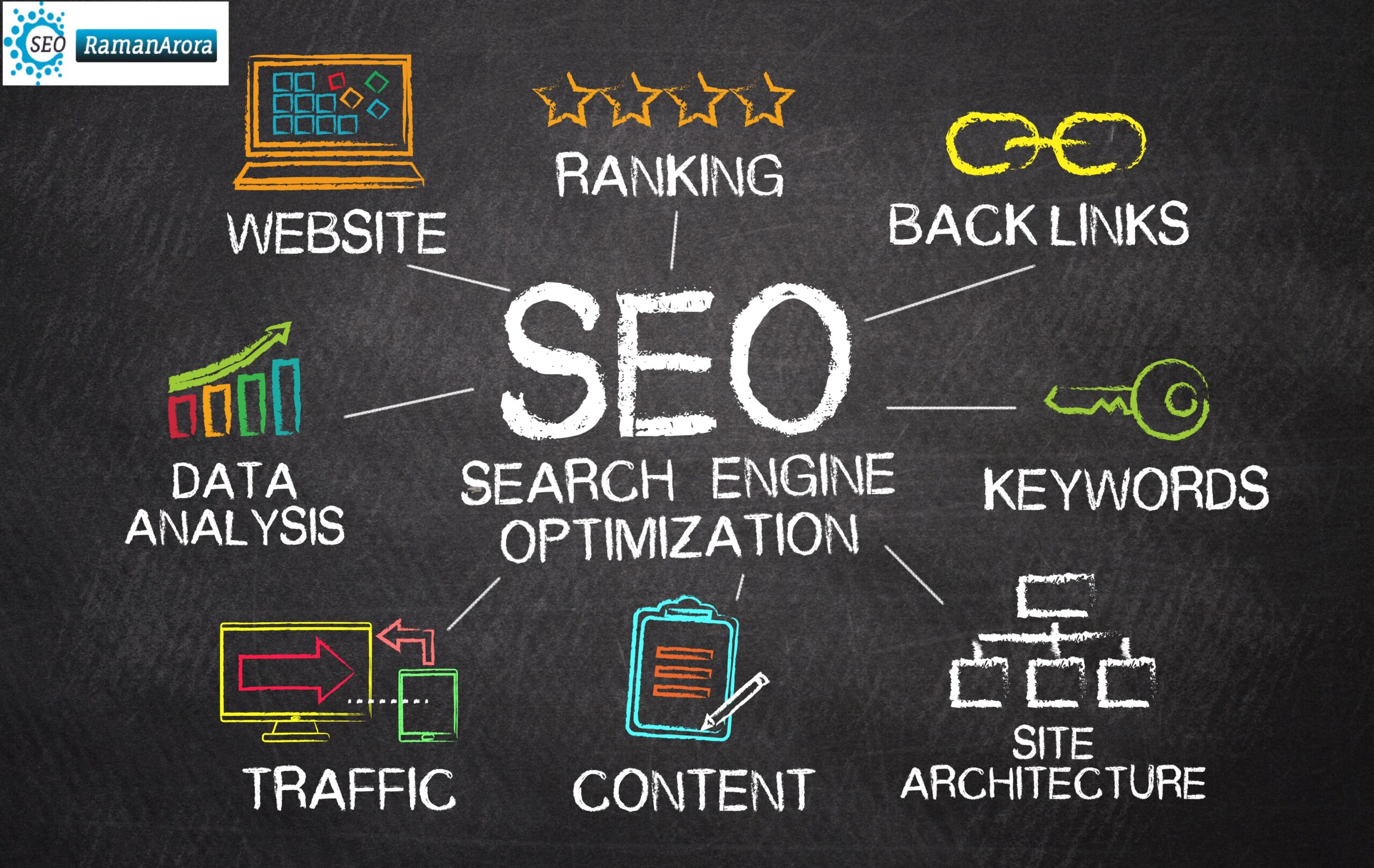
How SEO Can Optimize Your Online Business
Search Engine Optimization (SEO) is the lifeblood of online digital marketing. A combination of various strategies and best practices, optimization aims to drive Online Business growth by increasing site traffic and converting potential customers.
SEO is relatively cost-effective and provides long–term results, making it an invaluable business asset regardless of the size, whether small, medium, large, and whether a freshly-formed startup or an established transnational corporation.
If you’re running an online business, discover what SEO is, how it works, and how you can use optimization to maximize digital marketing, whether online or offline.
What Is SEO?
Optimization is the process of tweaking your content to increase your website traffic quality and quantity via organic search results. Simply put, it is a confluence of multiple strategies, actions, and best practices, which aim to enhance your website’s position in search engines, hence its name. Understanding your target market, the questions they want to be answered, and the type of content they want, is at the core of this practice.
One of the most critical aspects of SEO is link building or the process of acquiring hyperlinks from other authoritative websites to your site. Effective optimization practices enhance your site’s visibility, allowing it to rank higher in the search engine results pages (SERPs).
How Does SEO Work?
Everything starts with a simple query. When a user types an inquiry in a search engine such as Google search, search engines deploy bots to scan web pages to curate, analyze, and, later, rank these in the SERPs, based on several factors, including relevance, content quality, and authority.
SEO can be done off-page and on-page. Anything that you can manage or control to shoot up your site ranking, which includes keywords, site speed, among other components, falls under on-page optimization.
Off-page optimization refers to factors beyond your control but impact your site ranking nonetheless, such as backlinks – or the links from one page of a site to another. To ensure that they will work to your advantage, always check backlinks before using them.
How SEO Helps Your Online Business Grow
Whatever the size and nature of your business, you need optimization to get ahead of the competition. An online marketing strategy needs optimization to succeed, and this is especially true for your online business.
By controlling your site traffic and search ranking with SEO, you’re also maximizing opportunities for leads, conversion, and sales. Here’s how site optimization propels your digital business:
-
SEO is an effective inbound marketing strategy
Optimization targets quality traffic, which means you can reach out to users interested in what you have to offer. As an inbound marketing strategy, SEO allows consumers to reach out to you for content instead of your business, contacting them in the hopes of selling your product or service.
On the contrary, outbound marketing, such as cold calling, emailing, and paid ads, are typically seen as annoying and thus less effective in reaching out to your target audience.
About 59% of marketers cited inbound marketing practices for giving the highest quality leads for their sales teams, according to a HubSpot report.
Because your online business site is highly visible on the search results page, it takes the guesswork out of attracting users who need the product or service you’re offering. And, with the use of external links that can lead site visitors from one website onto yours, you know that you’re getting a good share of the market.
-
SEO can build brand awareness online
This is especially useful for startups aiming to establish an online presence. By placing high on the search engine results page, a fledgling online venture can stimulate brand awareness.
In this fast-paced digital world, people prefer to get information the fastest way possible. They’re more likely to click on your site if you appear high on the results page. More than making it easier for potential customers will find it easier to find you, ranking high on the results page also allows users to see your brand as reliable and trustworthy, as ranked by a specific search engine.
-
SEO leads to a higher conversion rate
Conversion rate refers to the number of website visitors that complete an action favorable to a company, such as buying a product. The guiding principle behind conversion rate optimization is not only in attracting more users to your site but in maximizing the value of your traffic.
SEO can help drive traffic to your site, which results in conversions.
Simply put, it means that good SEO has the capacity to convert potential clients into actual buyers. According to HubSpot, SEO leads have a 14.6% conversion rate—a huge difference from outbound leads, which recorded a measly 1.7% conversion rate.
-
SEO is a cost-effective online marketing tool
Investing in optimization for your online business is cheaper than spending on digital marketing such as pay-per-click (PPC) adverts, what with the looming danger of falling victim to click or ad-fraud activities.
PPC ads cost average spending of $2.32 per click, and they appear above organic search rankings on Google. But more users still prefer to visit the pages displayed in organic search results, seeing them as more reliable. Businesses need to invest in SEO content marketing, but the costs are minimal, and the impact, long-term.
-
SEO is a long-term marketing strategy
It takes time to build a reputation, whether online or offline. That’s why SEO is a painstaking process and does not offer instant results. However, SEO-friendly online content can last for several years, and it takes minimal cost to produce one. Compare that to paid ads, which require regular payments that last only for a short period.
People search the internet on a daily basis, 24 hours a day, seven days a week. And searches are the best drivers of consumer purchases. Industry estimates reveal that 80% of shoppers start their online shopping journey by searching for products online. In addition, 70% of users search a company first before deciding to visit or buy any product from them.
-
SEO allows your site to rank higher in organic search
If you’re not leading the search results, you’re not winning the competition. Sites that appear on the first page of the Google search engine snag an average traffic share of 91.5%, while the first site enjoys an average traffic share of 32.5%.
Ranking high in the SERPs not only makes it easier for clients to find you. It also serves as social proof that your site, company, products, and services, are well-founded. A good SEO can drive sales for your online business by allowing your page or site to dominate the search results.
How to Optimize SEO for A Successful Online Business
- Analyze all of your website data to understand where you need to improve and what’s already working.
- Produce valuable content with the correct user-driven keywords. An average of 1,600 words is ideal. On the same note, tweets should be no more than 100 words, and Facebook posts, about 40 characters.
- Optimize on-page and off-page SEO, with a focus on link-building, knowing how to use proper headlines, meta tags, among other factors.
- Consider guest blogging, analyzing social media activities, collaborating with influencers, and brand mentions.
- Make sure your site is optimized for mobile viewing, too, to avoid high bounce rates or the rate at which users leave before an actual interaction with your site is established.
- As speed matters not only in mobile viewing but in site viewing, too, ensure that your site doesn’t take forever to load. Avoid placing high-resolution photos on your site, for one.
The Takeaway
Optimization is critical in all stages of your business and is especially important for online businesses aiming to gain a foothold in the industry. Your efforts and investment may not pay off right away, but when it does, it’s paid back in spades.


No Comments